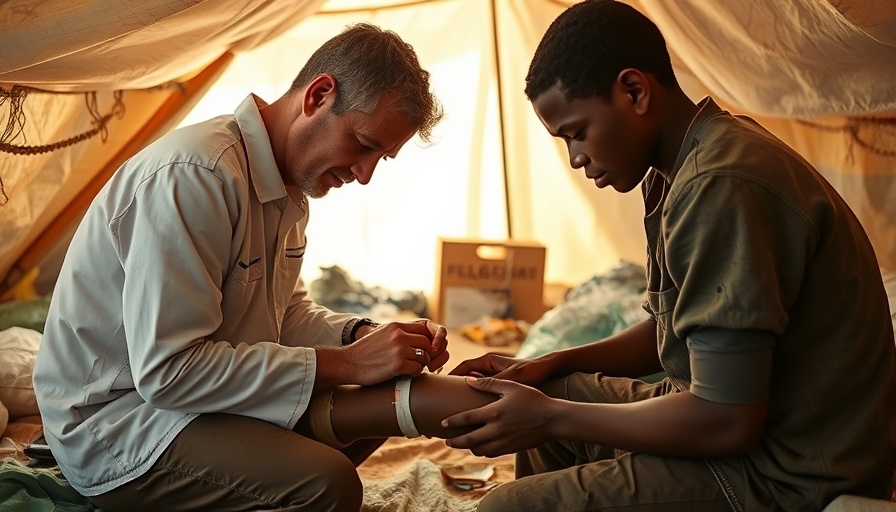
Humanitarian Crisis in Gaza: A Silent Struggle
The plight of the people in Gaza is unimaginable, as aid comes to a complete standstill for more than two months. Younis Al-Khatib, the head of the Palestine Red Crescent Society, paints a heartbreaking picture of a community facing a healthcare crisis amid conflict. The challenges faced are exacerbated by the longest blockade in Gaza’s history, which has resulted in 51,400 deaths since October 2023. The loss of life and resources has led to a devastating humanitarian situation, leaving many without basic necessities.
The Reality of Aid Workers' Sacrifice
In the wake of turmoil, 15 aid workers tragically lost their lives while trying to provide care. This brutal reality has not only crippled the services offered by the Palestine Red Crescent but also instilled fear in those who continue to serve. Al-Khatib emphasizes the bravery and dedication of the staff, sharing a poignant moment where a paramedic encouraged colleagues to remain committed despite the risk. "We believed in this path, so we must walk it," he said, reflecting their resolute promise to serve under dire circumstances.
The Dire Need for Aid
Food, medicine, and fuel resources have reached critical lows, with medical professionals resorting to using 'kitchen chemicals' to clean surgical tools. This desperation reflects a determination to maintain operations, even under extreme scarcity. The absence of essential supplies like food and medical aid overshadows the population of 2.3 million residents who rely heavily on external support, making the situation even more alarming.
Lessons from Global Aid Efforts
This humanitarian crisis does not exist in a vacuum; it connects to broader issues of global aid and compassionate responses to emergencies. Organizations such as the International Red Cross often highlight the importance of secure avenues for aid delivery. Learning from these insights demonstrates the vital role that international partnerships and strategic planning play in delivering meaningful support to vulnerable populations.
Importance of Community Resilience
Resilience within the local community cannot be overlooked. Al-Khatib's reflections on the spirit of the Red Crescent volunteers underscore the depth of connection among the people they serve. Maintaining a sense of unity and purpose can be pivotal in overcoming adversity. Encouraging local efforts and fostering community gardens and sustainable agriculture practices become essential tools in resilience building even amidst severe resource shortages.
Future Perspectives: Ways to Help
As awareness of the dire circumstances in Gaza spreads, many may wonder how they can extend their support. Engaging in conversations about sustainable solutions and supporting fair trade and ethically sourced products can help alleviate global aid challenges. These small yet meaningful actions contribute to the larger framework of sustainability practices and emphasize global interconnectedness.
A Call for Global Responsibility
The harrowing experiences shared by Younis Al-Khatib shed light on an urgent call for global compassion and action. Every individual can take steps towards a more sustainable future through eco-friendly actions—like reducing waste and choosing green products. Such choices not only impact the environment but are also reminders of our collective responsibility to contribute positively to the world, even in the face of challenges far beyond our immediate reach.
 Add Row
Add Row  Add
Add 



Write A Comment